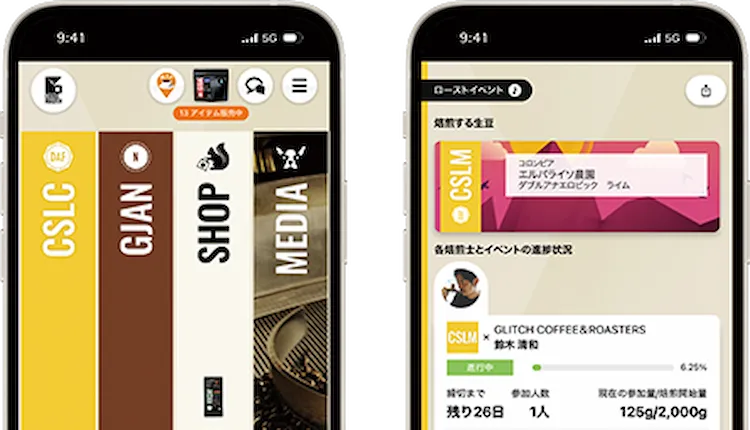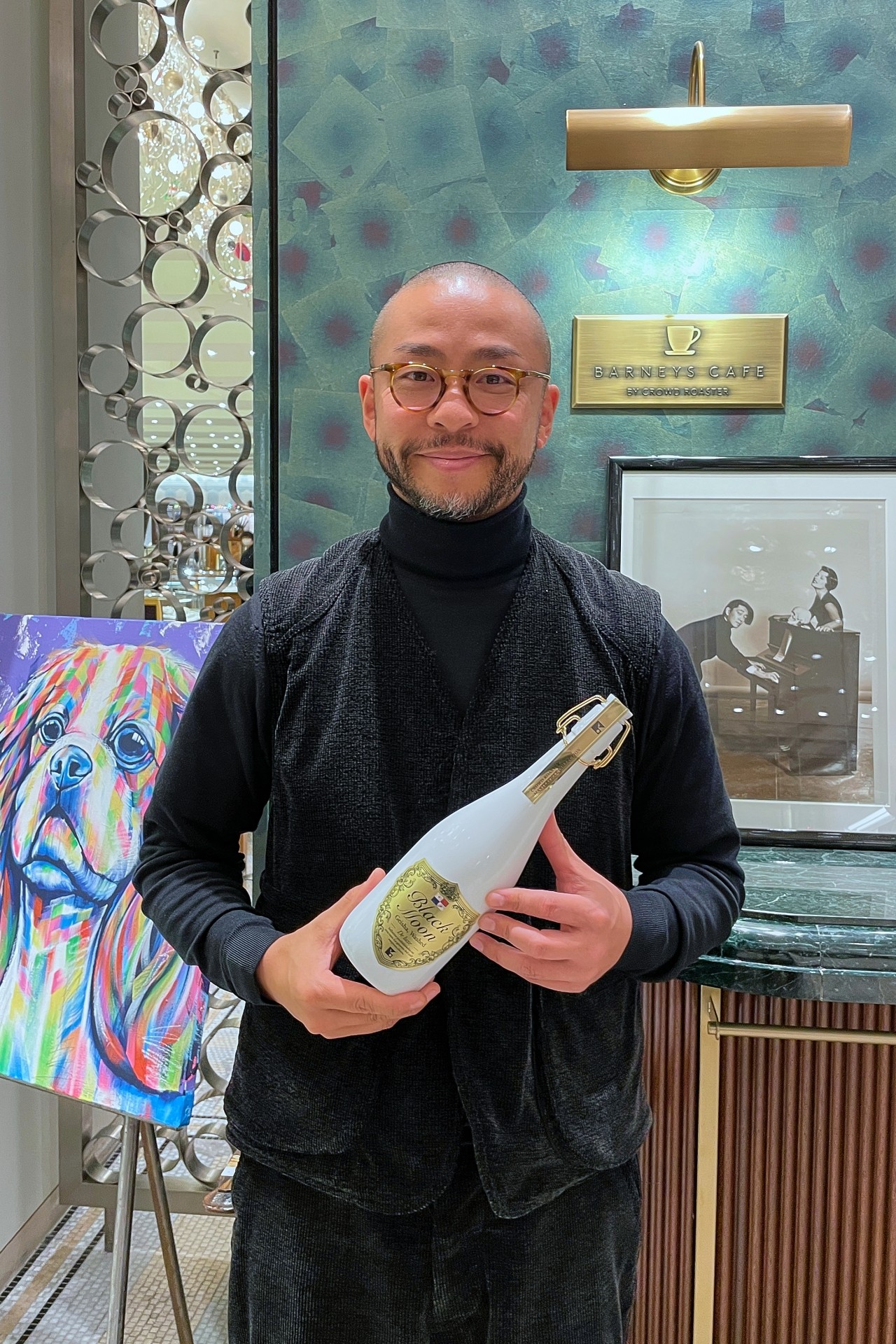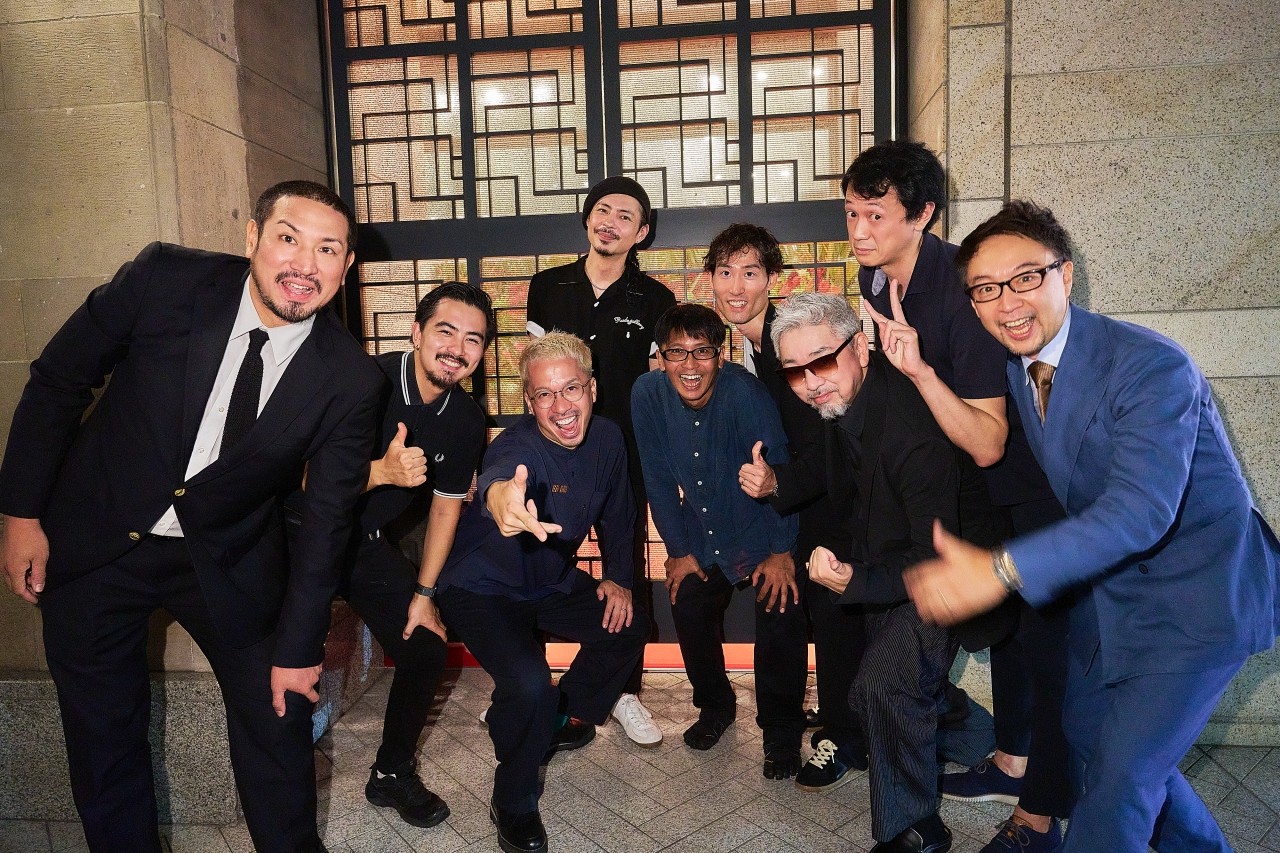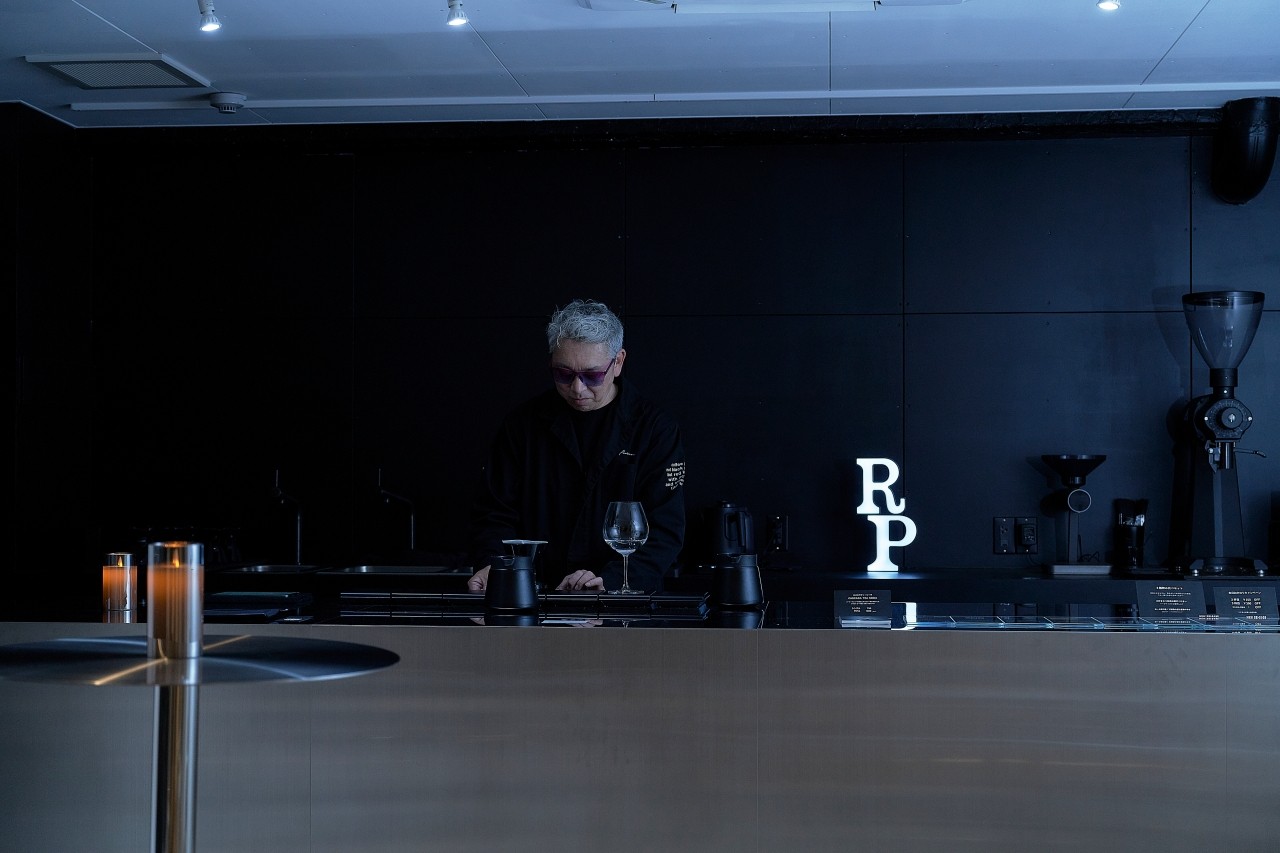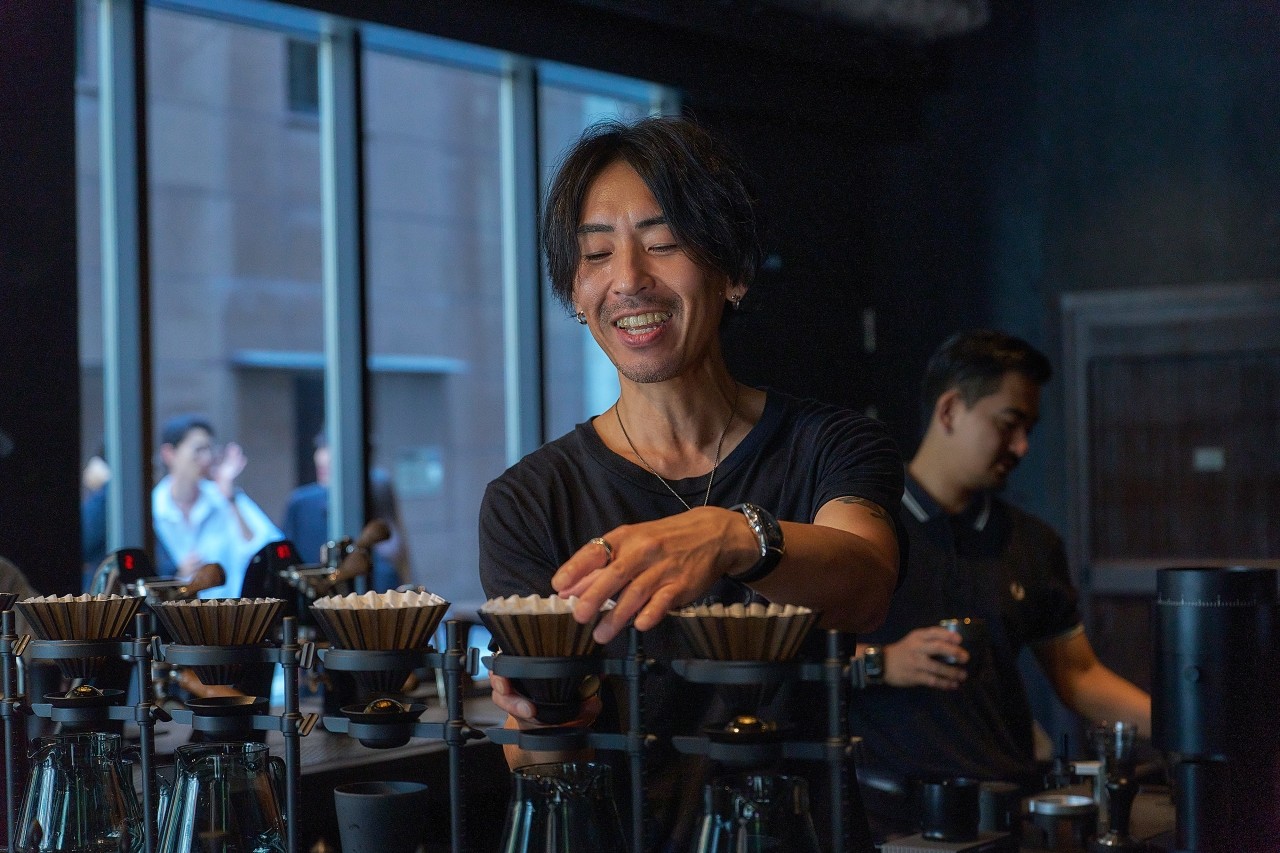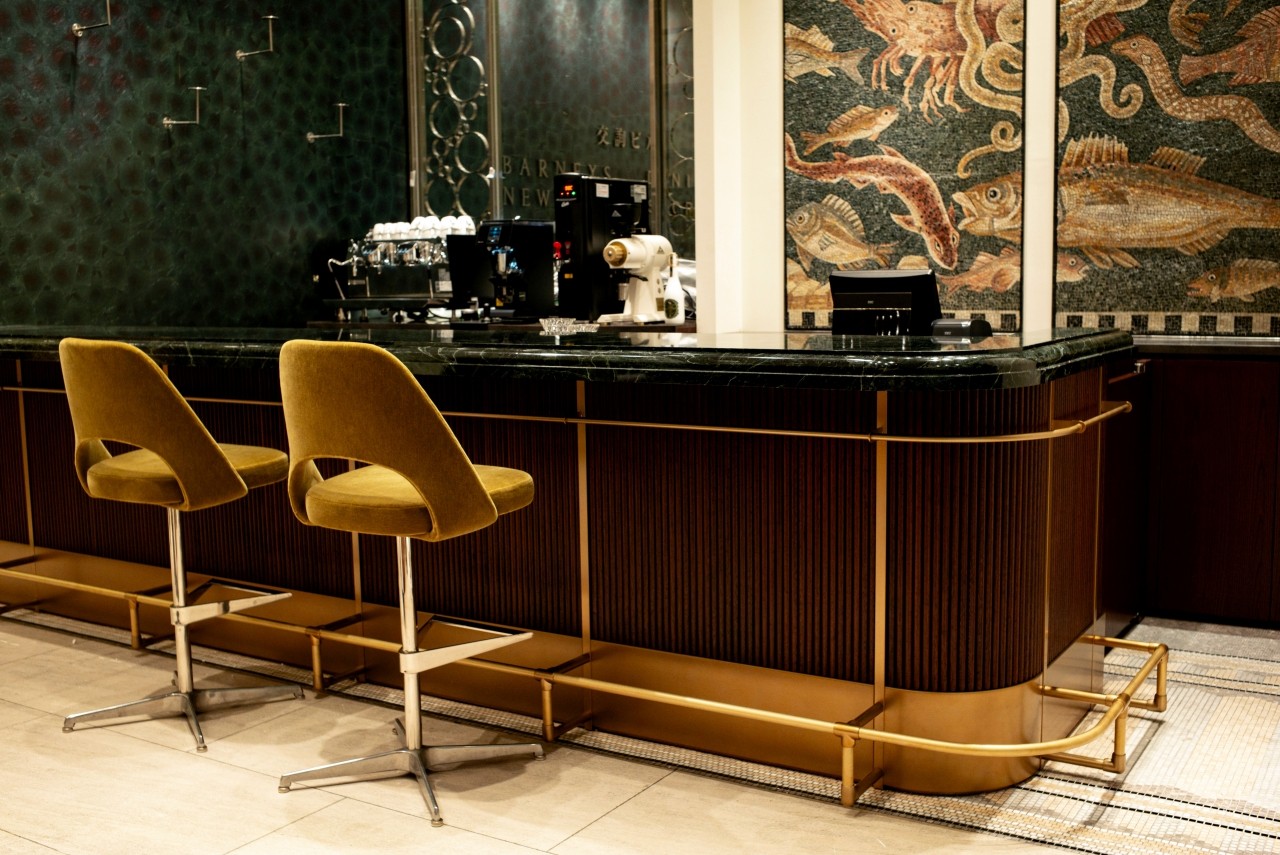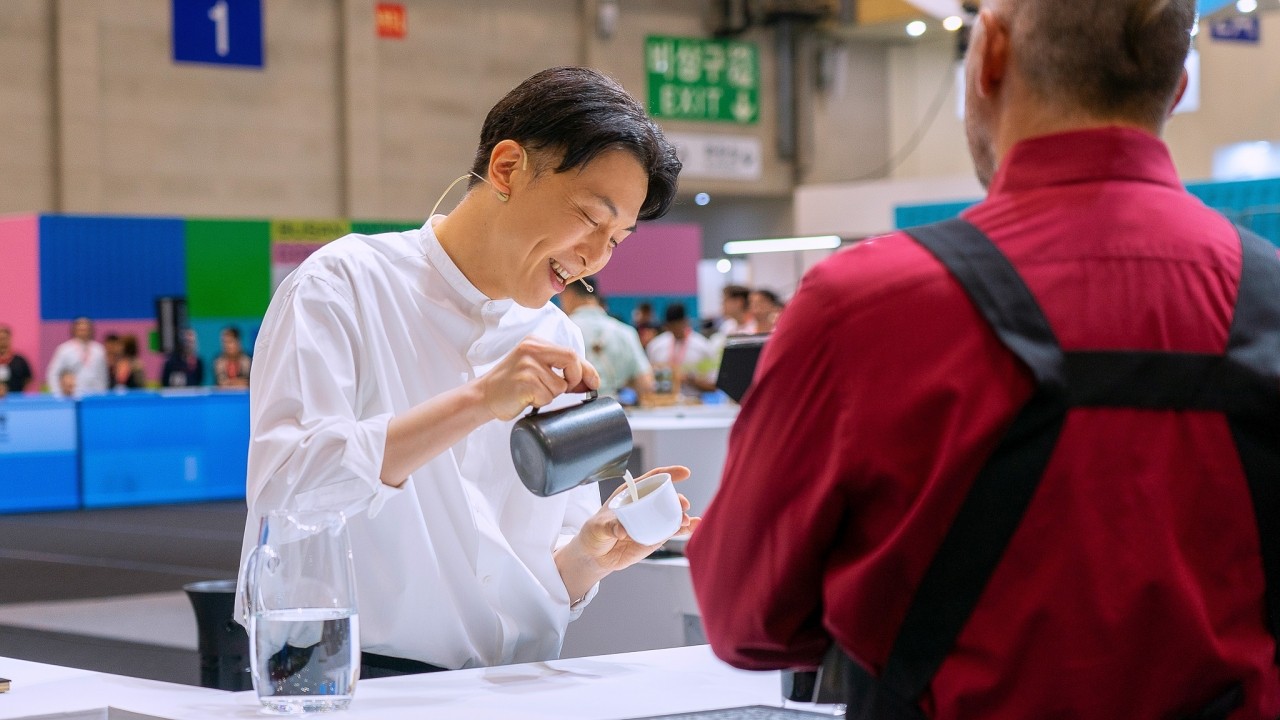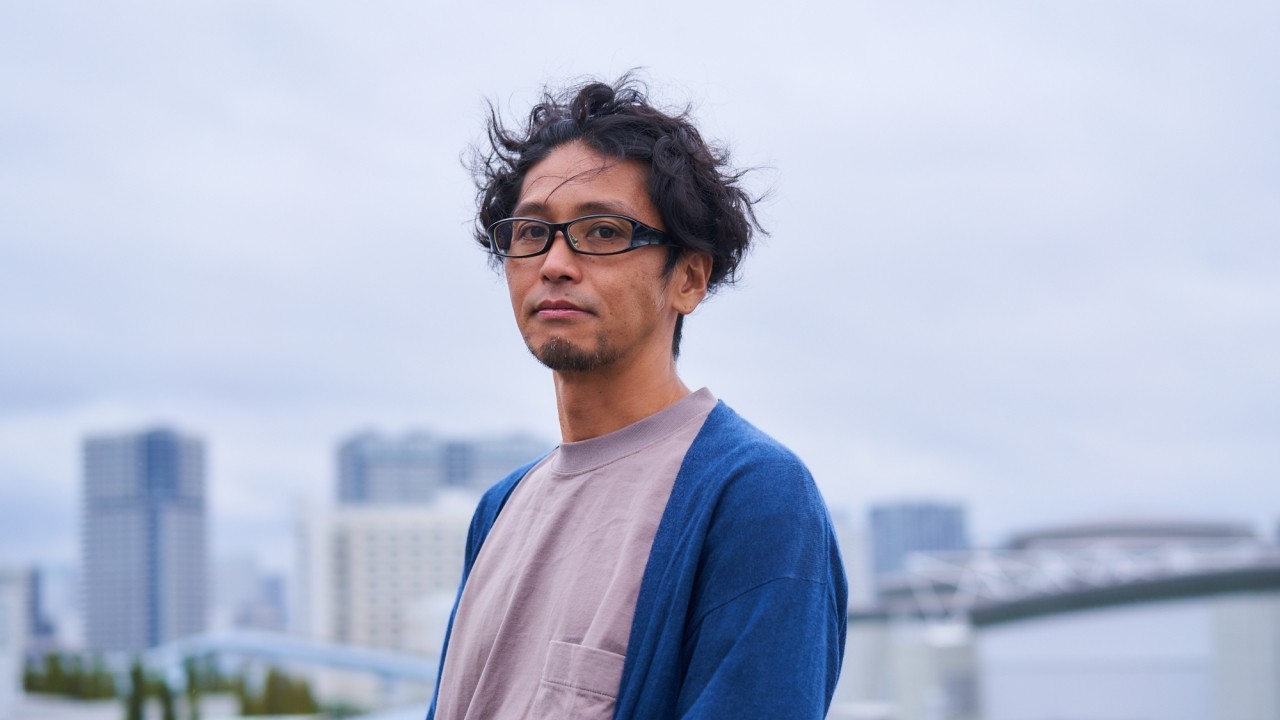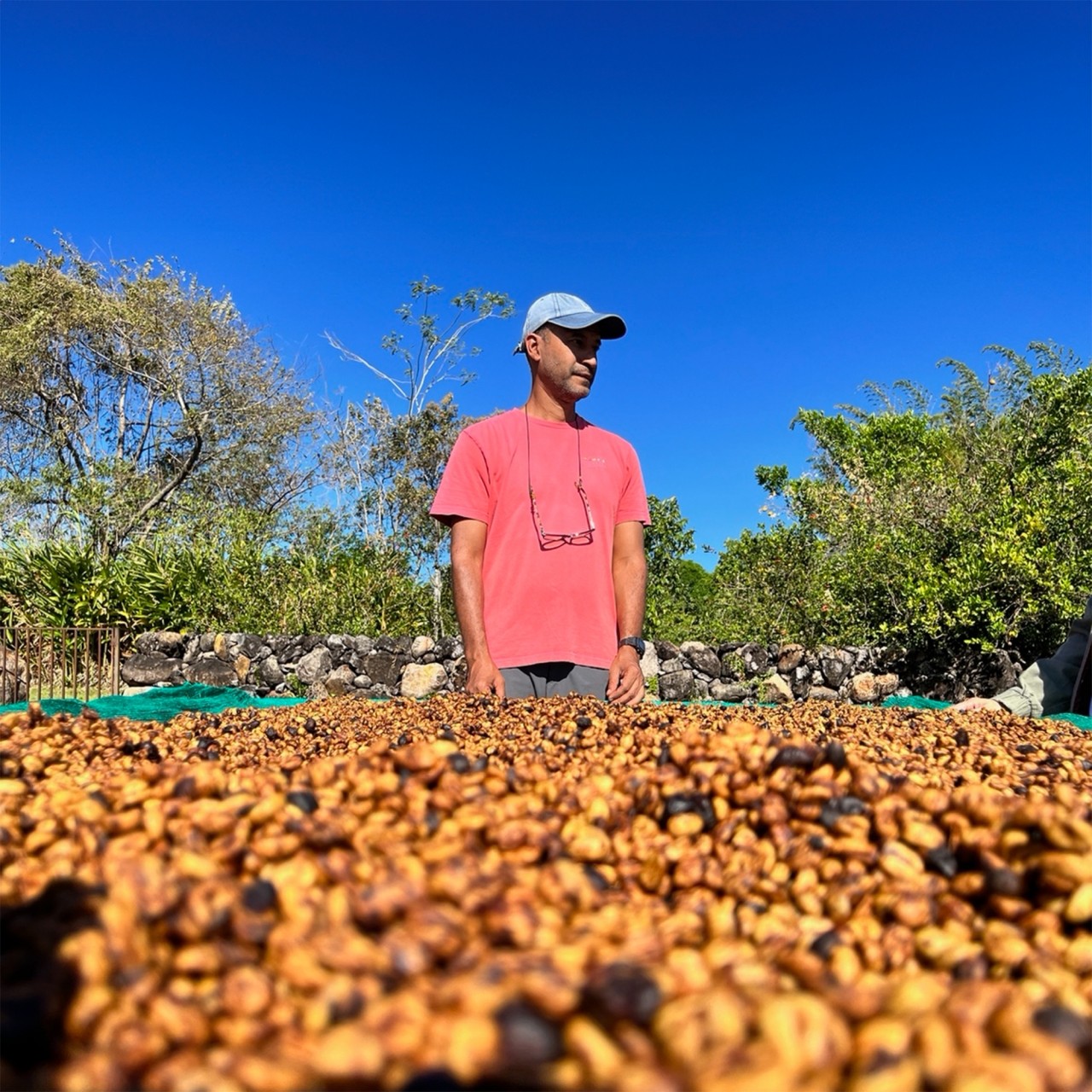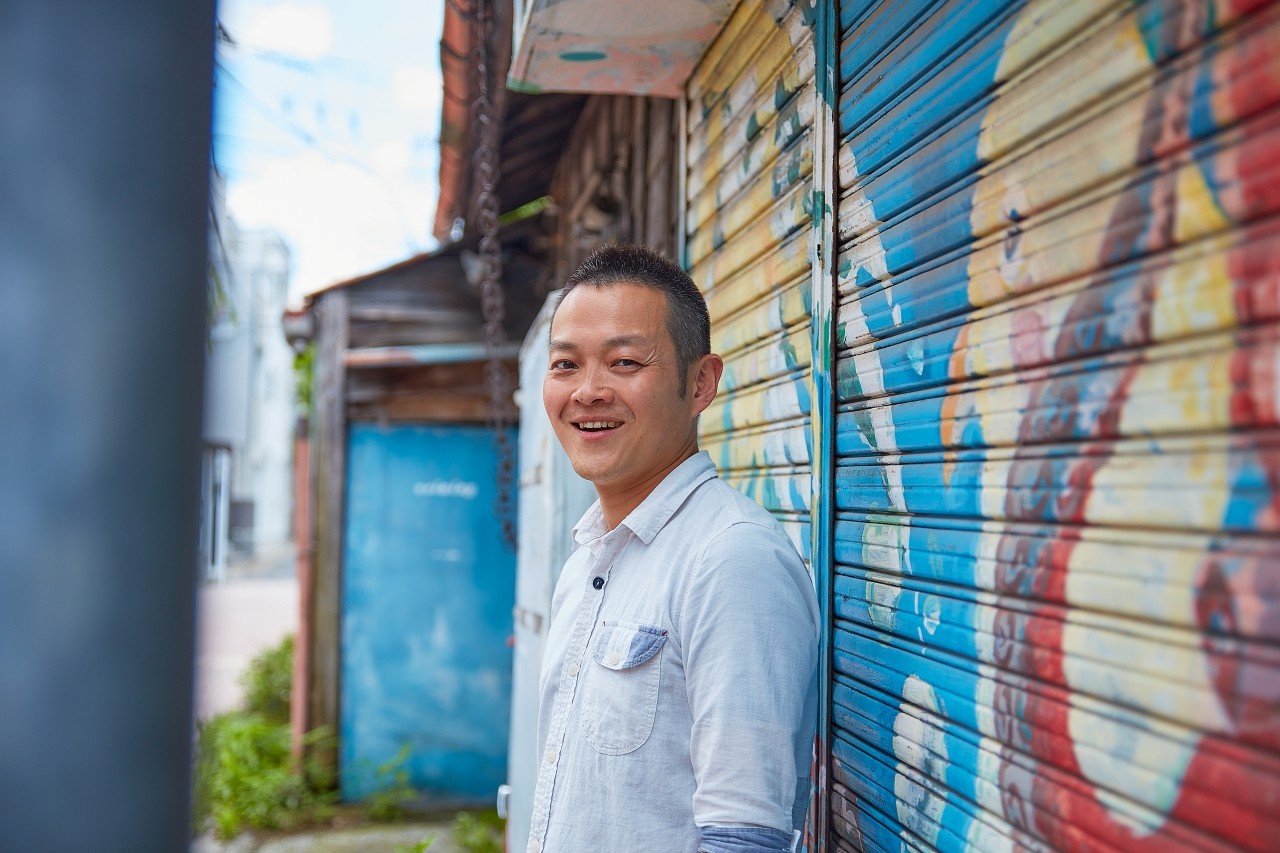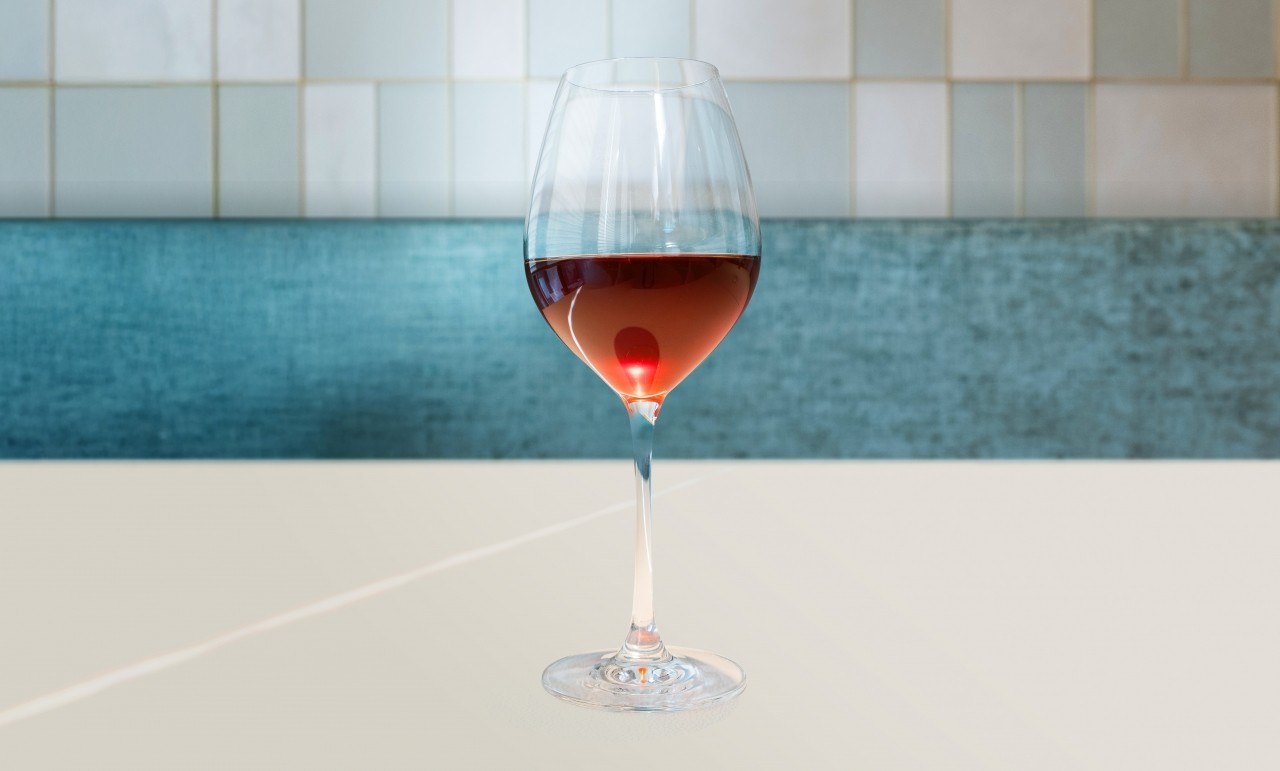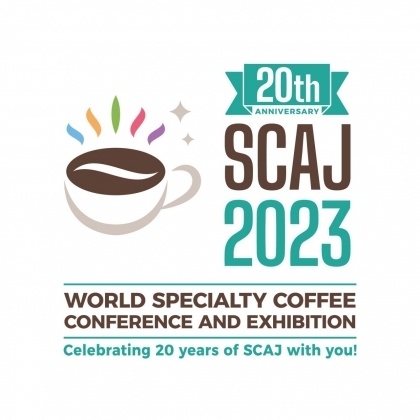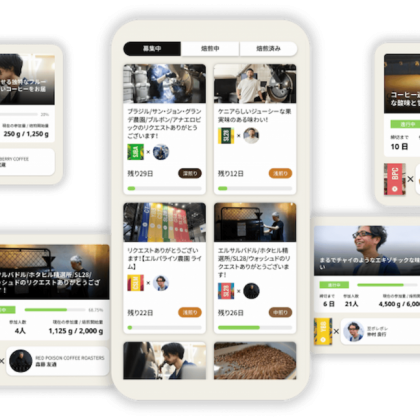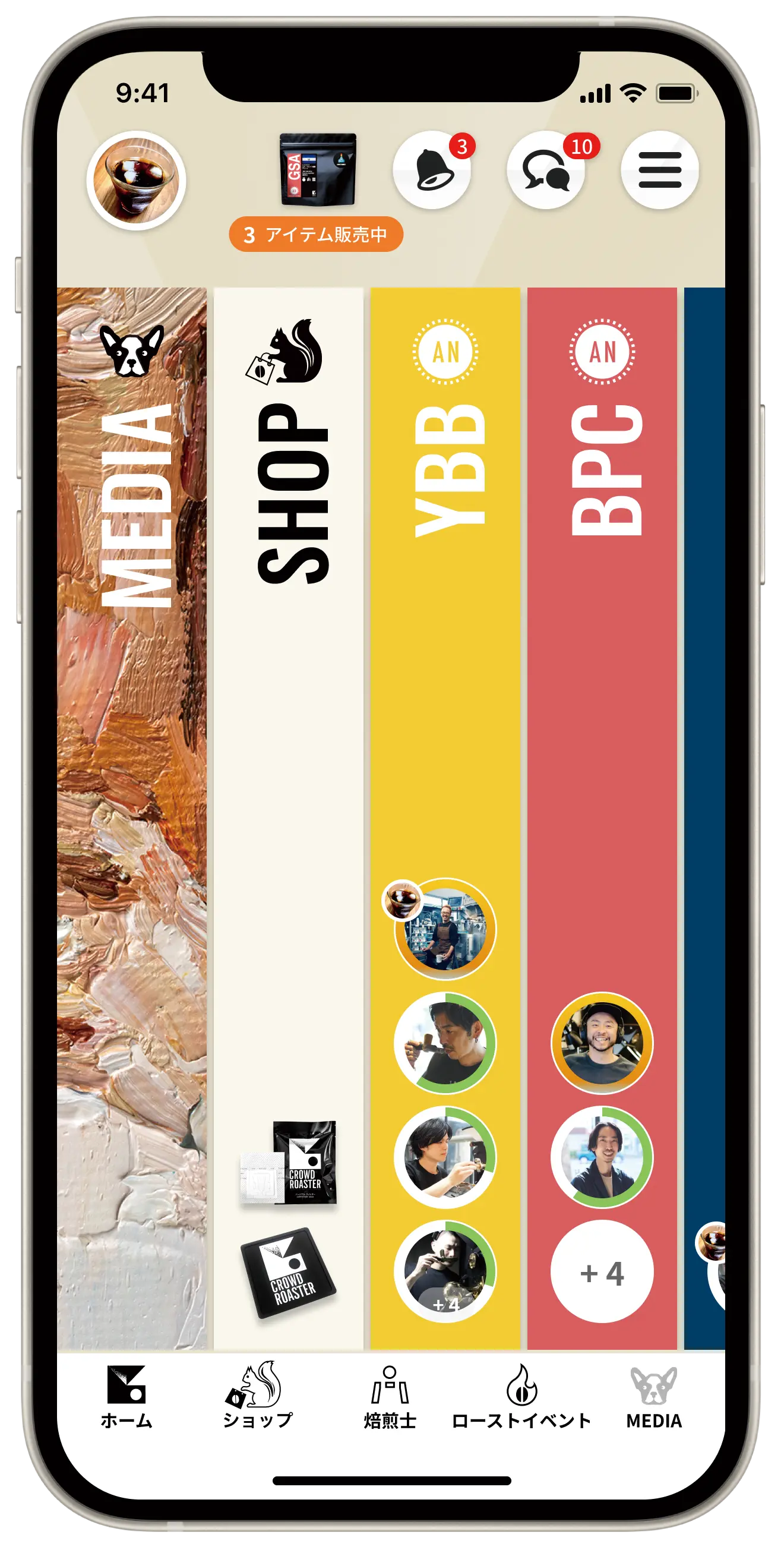Roaster Takuya Miura aims to create “Japanese Roast” that can be used around the world
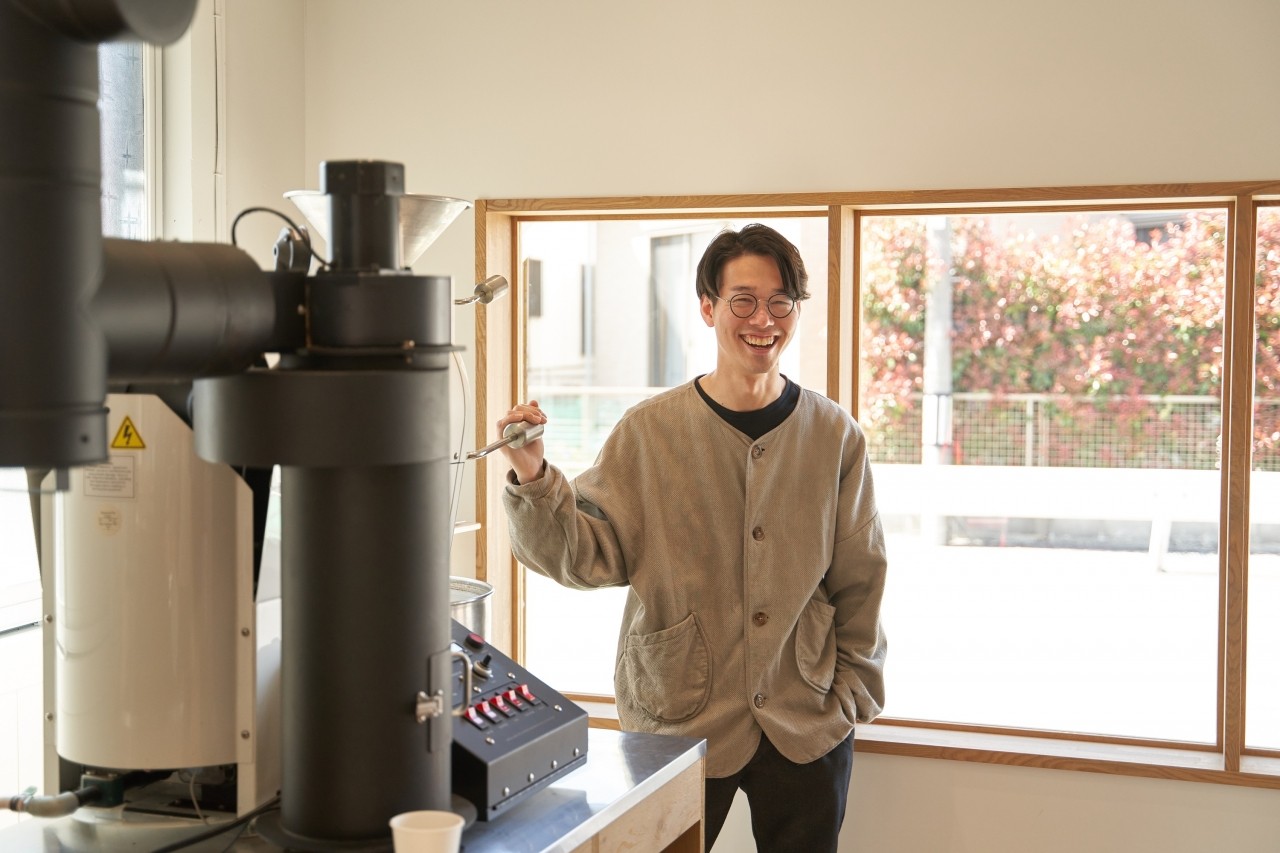
FUKUSUKE COFFEE ROASTERY a roastery and coffee shop that just opened in April 2023 in Anjo City, Aichi Prefecture.
The owner, Takuya Miura , is one of the most talked-about roasters today, having Manabu as a barista in Canada and at Rokumei Coffee Co. in Nara Prefecture, and won the 1st Crack Coffee Challenge, a competition hosted by Giessen Japan in 2022.
In the Anjo area, where coffee shop culture remains strong, coffee shops that focus on specialty coffee are still rare. Miura is bringing a breath of fresh air to this city while also cherishing the traditions of this long-standing region.
The owner, Takuya Miura , is one of the most talked-about roasters today, having Manabu as a barista in Canada and at Rokumei Coffee Co. in Nara Prefecture, and won the 1st Crack Coffee Challenge, a competition hosted by Giessen Japan in 2022.
In the Anjo area, where coffee shop culture remains strong, coffee shops that focus on specialty coffee are still rare. Miura is bringing a breath of fresh air to this city while also cherishing the traditions of this long-standing region.
Winner of the "1st Crack Coffee Challenge" for young coffee roasters
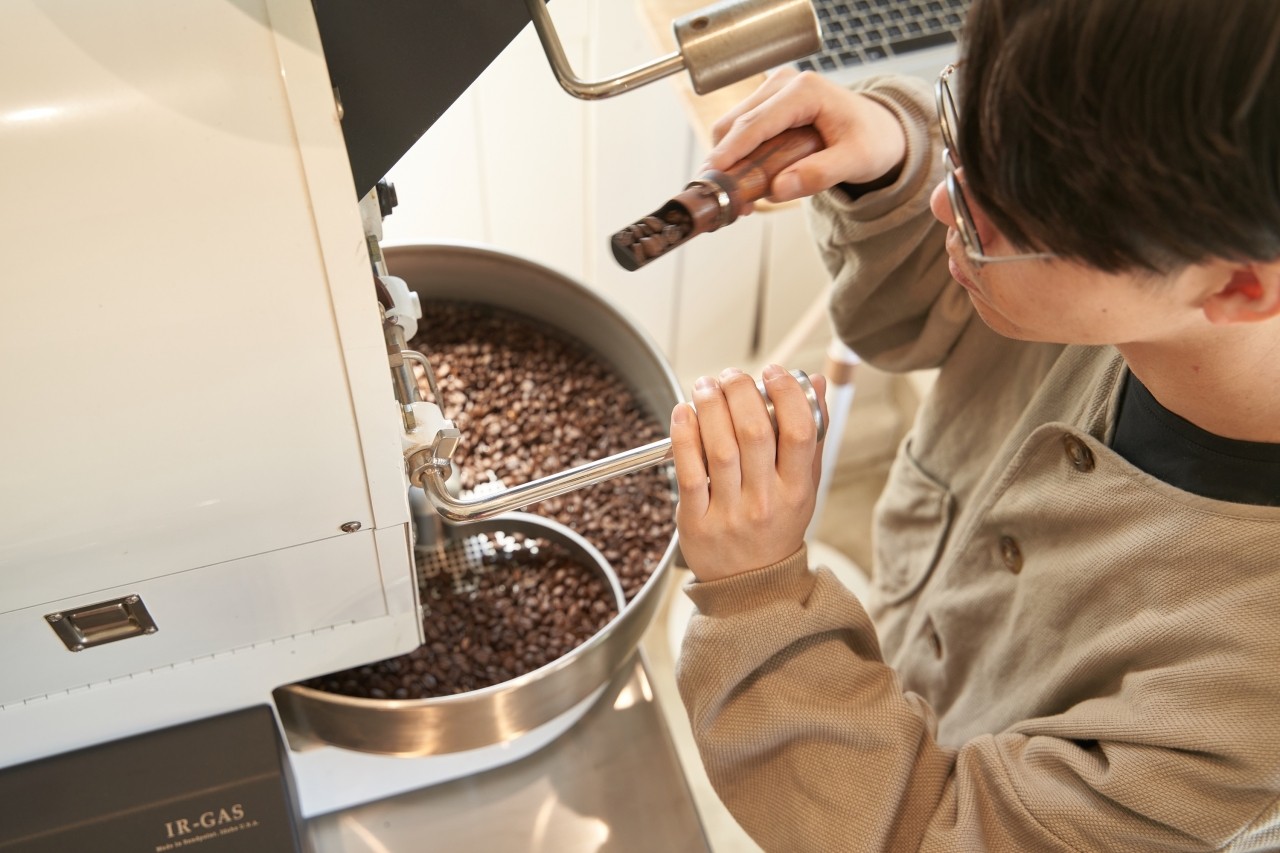
The "1st Crack Coffee Challenge" is a roasting competition for young roasters under the age of 35, which will be held for the first time in 2022. After a preliminary round of 60 participants, the field will be narrowed down to four, and the winner will be decided in the final based on roasting, brewing, and presentation.
In the preliminary round, participants are given two types of roasted coffee beans and compete to see how close they can roast the coffee to those two types. Although the competition is run by Giessen Japan, participants are allowed to use their own roasting machines that they are familiar with, and the roasting technique is tested to bring the same beans as the sample to the same state.
"Of the two tasks in the preliminary round, I completely missed one, but for the other I was able to get the color, the popping, and the timing of the ejection perfectly in line with my aim, and I came in second place."
Miura had participated in roasting competitions for the Aeropress competition in the past, but as this was his first time, he found it difficult not knowing the trends beforehand. In the final, he was required to roast and brew the beans in the way he wanted, and to give a presentation on the theme of "Coffee Now and Future," which was different from other competitions.
"Winning the championship has allowed me to deliver the coffee I want to deliver to more people, and it's also given local people an opportunity to become more interested in coffee."
He also says that this presentation gave him the opportunity to summarise what he wanted to achieve as a coffee roaster.
"I told them that the job of a roaster should be that of a craftsman as well as a businessman. No matter how lofty their ideals, if they can't make it a stable job, they can't give back to the producers. I don't think that society can be improved just by loving coffee, so I began to think that various perspectives were also necessary."
In the preliminary round, participants are given two types of roasted coffee beans and compete to see how close they can roast the coffee to those two types. Although the competition is run by Giessen Japan, participants are allowed to use their own roasting machines that they are familiar with, and the roasting technique is tested to bring the same beans as the sample to the same state.
"Of the two tasks in the preliminary round, I completely missed one, but for the other I was able to get the color, the popping, and the timing of the ejection perfectly in line with my aim, and I came in second place."
Miura had participated in roasting competitions for the Aeropress competition in the past, but as this was his first time, he found it difficult not knowing the trends beforehand. In the final, he was required to roast and brew the beans in the way he wanted, and to give a presentation on the theme of "Coffee Now and Future," which was different from other competitions.
"Winning the championship has allowed me to deliver the coffee I want to deliver to more people, and it's also given local people an opportunity to become more interested in coffee."
He also says that this presentation gave him the opportunity to summarise what he wanted to achieve as a coffee roaster.
"I told them that the job of a roaster should be that of a craftsman as well as a businessman. No matter how lofty their ideals, if they can't make it a stable job, they can't give back to the producers. I don't think that society can be improved just by loving coffee, so I began to think that various perspectives were also necessary."
Panama Esmeralda Geisha 's Impact
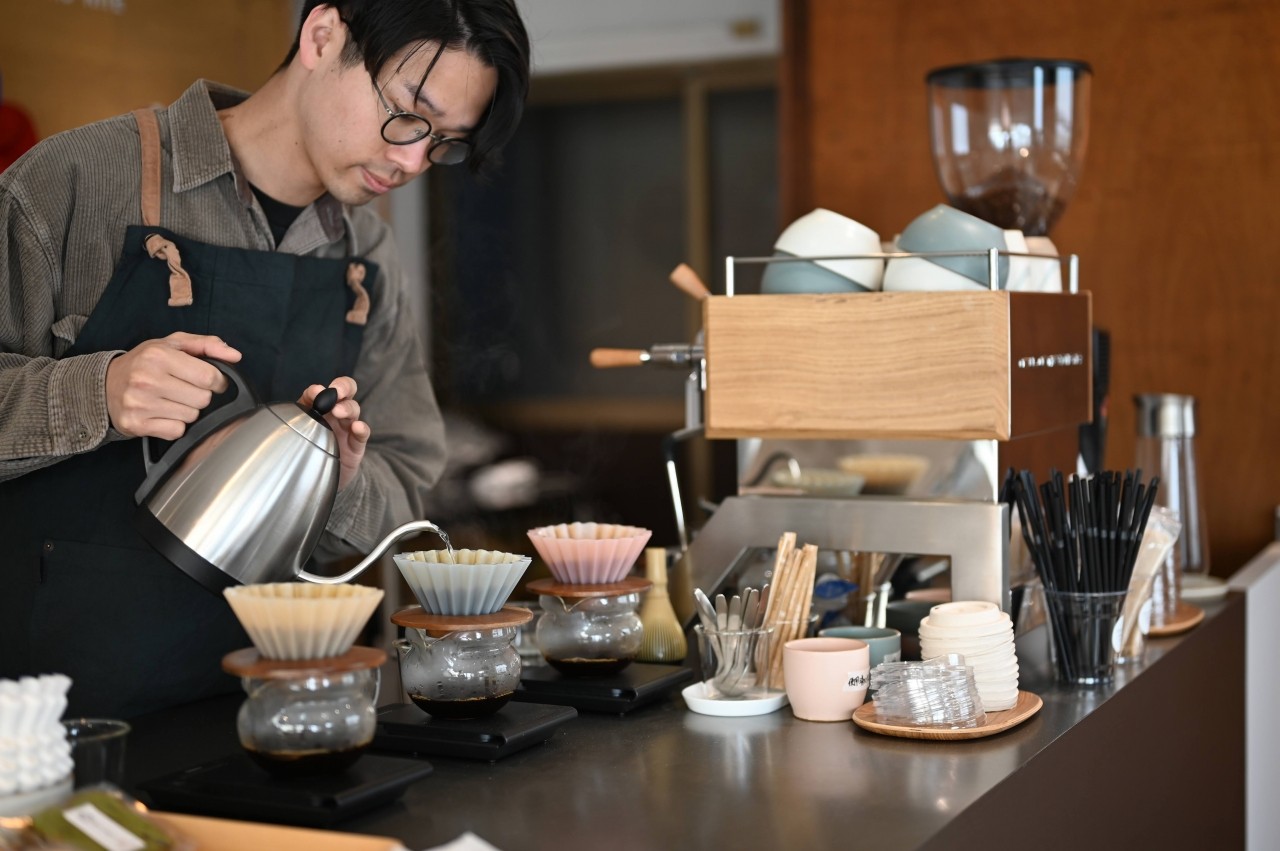
Although Miura is now known as an up-and-coming coffee roaster, he first became fascinated with coffee at the age of 24, when he happened to stop by a coffee shop and tried some.
"It started when I tried Geisha coffee from Panama's Esmeralda Farm at Mamezou, a specialty coffee shop in Aichi Prefecture, and was shocked. At the time, I didn't like the bitterness of coffee, so I don't remember why I drank it black, but the extremely floral aroma kept me immersed in the aftertaste for about 30 minutes."
After this experience, he learned that roasting is important for creating the flavor of coffee while roasting coffee by hand at home, and decided to become a coffee roaster. He quit his job in welfare and took advantage of a working holiday visa to go to Canada for a year to train as a barista.
"I somehow felt that roasting was the right job for me. It was around the time that the World Coffee Cup Champion, Satoshi Kasuya, was in the headlines, and I thought that if I wanted to become a roaster, I should Manabu English and learn about coffee from around the world."
What I learned while training as a barista in Canada was the connection between people that can be made through coffee.
"In Canada, both customers and staff say things to each other like, 'Have a nice day,' and 'You too,' which show consideration for each other. This was my formative experience as a barista."
After returning to Japan, he trained as a roaster for three years at Rokumei Coffee Co. in Nara Prefecture. Despite being a newcomer, he was actively involved in roasting, using a shared profile with a rolling 12kg pot, and was given the opportunity to roast rare beans from the COE (Cup Of Excellence), which became a valuable experience for him.
After winning the "1st Crack Coffee Challenge" in 2022, he opened " FUKUSUKE COFFEE ROASTERY " in his hometown of Anjo City in April 2023. The store's name "FUKUSUKE" was chosen based on the Fukusuke design, which is famous for the local traditional craft "Sakurai Kite," and also from his desire to spread "good fortune" through coffee.
"Anjo City has many traditional coffee shops, but there aren't many specialty coffee shops.
The concept of the shop is "a fusion of old and new" and "friendliness and edginess". We started the shop with the desire to connect people of all generations through coffee and to make everyone happy."
"It started when I tried Geisha coffee from Panama's Esmeralda Farm at Mamezou, a specialty coffee shop in Aichi Prefecture, and was shocked. At the time, I didn't like the bitterness of coffee, so I don't remember why I drank it black, but the extremely floral aroma kept me immersed in the aftertaste for about 30 minutes."
After this experience, he learned that roasting is important for creating the flavor of coffee while roasting coffee by hand at home, and decided to become a coffee roaster. He quit his job in welfare and took advantage of a working holiday visa to go to Canada for a year to train as a barista.
"I somehow felt that roasting was the right job for me. It was around the time that the World Coffee Cup Champion, Satoshi Kasuya, was in the headlines, and I thought that if I wanted to become a roaster, I should Manabu English and learn about coffee from around the world."
What I learned while training as a barista in Canada was the connection between people that can be made through coffee.
"In Canada, both customers and staff say things to each other like, 'Have a nice day,' and 'You too,' which show consideration for each other. This was my formative experience as a barista."
After returning to Japan, he trained as a roaster for three years at Rokumei Coffee Co. in Nara Prefecture. Despite being a newcomer, he was actively involved in roasting, using a shared profile with a rolling 12kg pot, and was given the opportunity to roast rare beans from the COE (Cup Of Excellence), which became a valuable experience for him.
After winning the "1st Crack Coffee Challenge" in 2022, he opened " FUKUSUKE COFFEE ROASTERY " in his hometown of Anjo City in April 2023. The store's name "FUKUSUKE" was chosen based on the Fukusuke design, which is famous for the local traditional craft "Sakurai Kite," and also from his desire to spread "good fortune" through coffee.
"Anjo City has many traditional coffee shops, but there aren't many specialty coffee shops.
The concept of the shop is "a fusion of old and new" and "friendliness and edginess". We started the shop with the desire to connect people of all generations through coffee and to make everyone happy."
I want to contribute to the specialty coffee industry
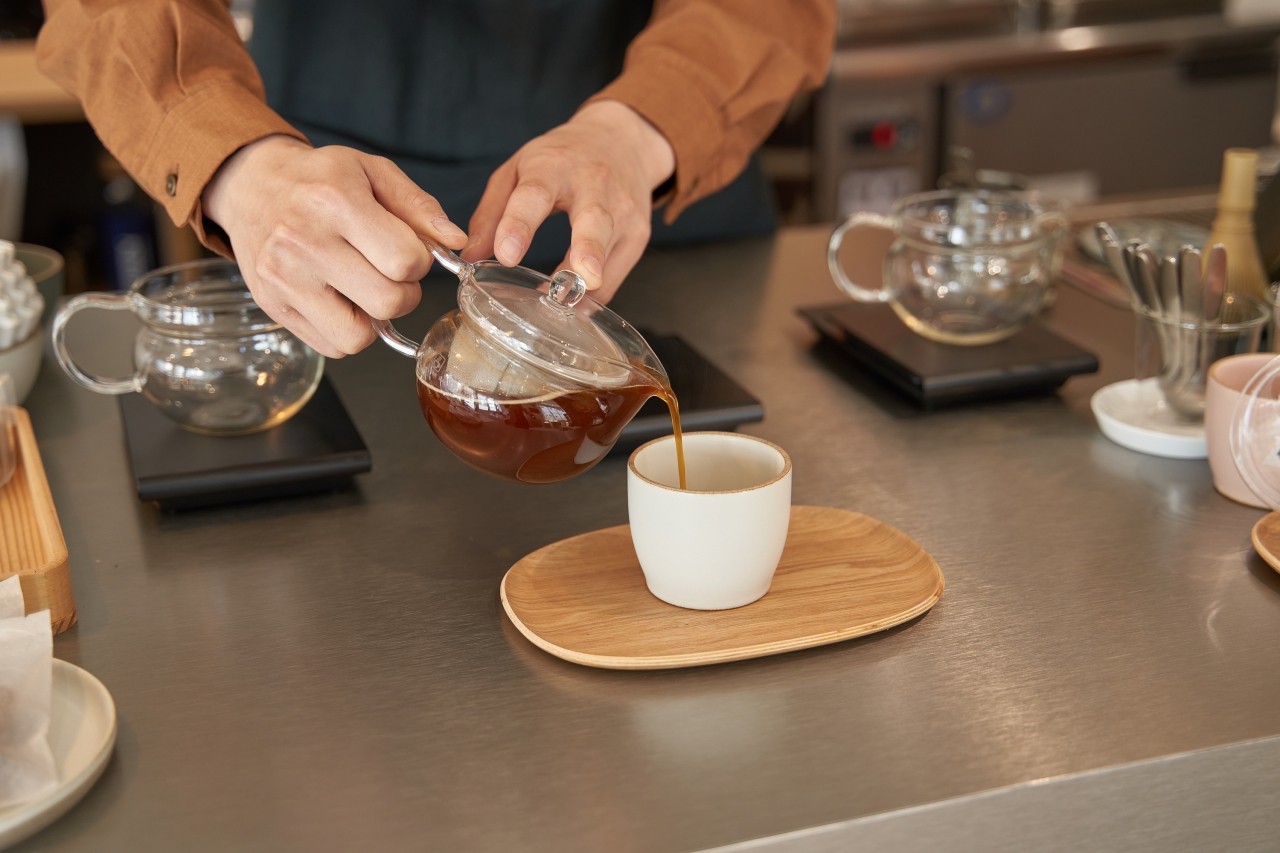
For Miura , the job of roasting is "something to make everyone involved happy."
"What we roasters can do with coffee is to create flavor through roasting. The reason we do this is to make our customers happy and want to drink it again."
However, Miura doesn't just think that the taste is enough. For example, many of the coffees that Miura sells in his shop are from regions that are not well known for producing specialty coffee, such as Myanmar and Uganda.
"We handle beans from regions famous for their specialty coffee, but we also want to contribute to the specialty coffee industry by selecting coffee from growing regions that are currently working to improve their quality, such as Wenzoli Dong Kee Natural from Uganda and different coffees from each village in Myanmar."
"What we roasters can do with coffee is to create flavor through roasting. The reason we do this is to make our customers happy and want to drink it again."
However, Miura doesn't just think that the taste is enough. For example, many of the coffees that Miura sells in his shop are from regions that are not well known for producing specialty coffee, such as Myanmar and Uganda.
"We handle beans from regions famous for their specialty coffee, but we also want to contribute to the specialty coffee industry by selecting coffee from growing regions that are currently working to improve their quality, such as Wenzoli Dong Kee Natural from Uganda and different coffees from each village in Myanmar."
Cherishing "sweetness" to the fullest
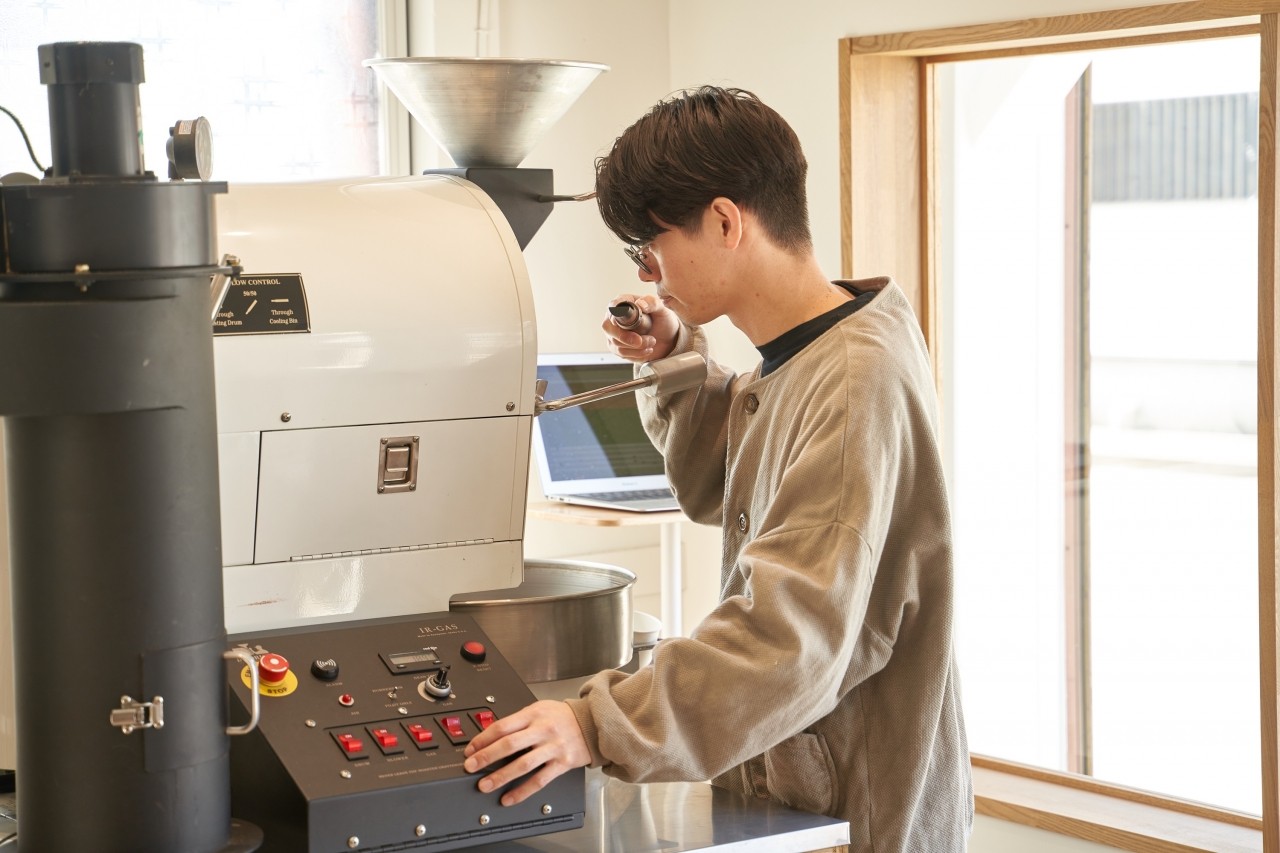
The ideal roast that Miura aims for is a sweet, smooth roast that maximizes the flavor characteristics of the coffee. This was triggered by a cupping experience at a roastery he visited in the Netherlands, the home of Giessen, as a prize for winning the championship.
"Honestly, it was almost frustrating to see how clean and sweet the coffee was from all the roasteries. I was shocked to see how high the level of coffee in a country with such great roasting machines could be. What they all had in common was that even the light roasts didn't have a straw-like flavor, and had a strong sweetness to them."
Through these experiences, we aim to create "Japanese Roast" that will resonate around the world by combining the roasting techniques we have cultivated in Japan with roasting techniques from overseas.
"I like the sourness of specialty coffee, but there are some people who like sourness and others who like bitterness. But I think what we all like in common is the sweetness that you can feel in it.
"Whether it's light roasted and acidic, or dark roasted and bitter, sweet coffee will have a good mouthfeel. And regardless of the roasting method or roaster, I think you can make sweet, clean coffee by adding the right amount of heat."
"Honestly, it was almost frustrating to see how clean and sweet the coffee was from all the roasteries. I was shocked to see how high the level of coffee in a country with such great roasting machines could be. What they all had in common was that even the light roasts didn't have a straw-like flavor, and had a strong sweetness to them."
Through these experiences, we aim to create "Japanese Roast" that will resonate around the world by combining the roasting techniques we have cultivated in Japan with roasting techniques from overseas.
"I like the sourness of specialty coffee, but there are some people who like sourness and others who like bitterness. But I think what we all like in common is the sweetness that you can feel in it.
"Whether it's light roasted and acidic, or dark roasted and bitter, sweet coffee will have a good mouthfeel. And regardless of the roasting method or roaster, I think you can make sweet, clean coffee by adding the right amount of heat."
A roastery with deep roots in the local community
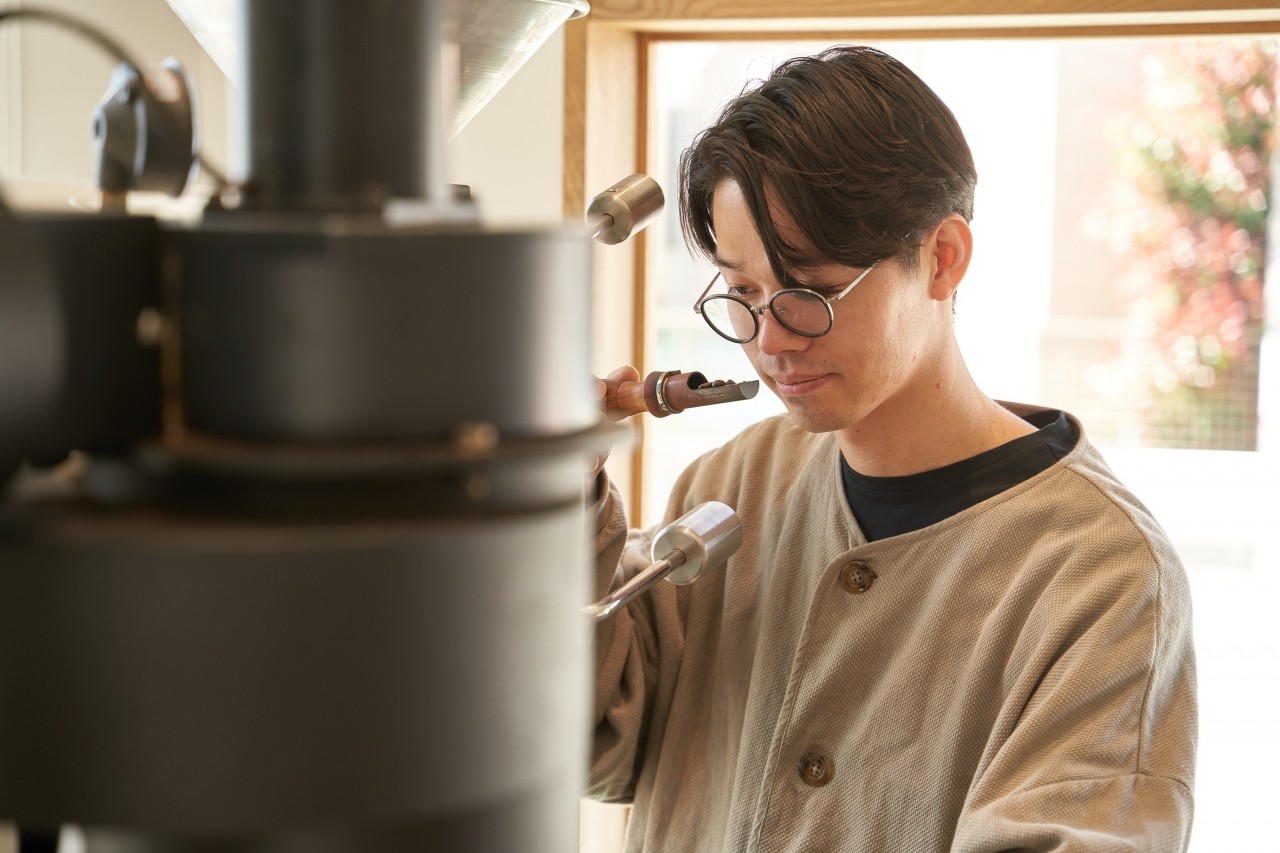
Thanks to their success in the "1st Crack Coffee Challenge", many people who didn't know that such a coffee shop existed in Anjo City became aware of specialty coffee. Their next goal is the "WCRC" (World Coffee Roasting Championship).
"The organizers of this tournament, Giessen Japan, are about the same generation as me, and it was their first time hosting the tournament, so I received a lot of inspiration from everyone on the organizing team. It made me realize once again that our generation, which is considered young, needs to take on new challenges and create the future, and it was an important experience in my career.
They plan to create products bearing the name of the traditional craft "Sakurai Kite" and continue to expand their activities to preserve local traditions.
In the future, I want to aim higher as a roaster and try my hand at the WCRC. And in addition to pursuing even greater roasting skills, I also hope to spread the cycle of "happiness" from Anjo City to the whole of Japan and the world through coffee."
Even after winning this prestigious award, this up-and-coming roaster is not at all arrogant. FUKUSUKE COFFEE ROASTERY continues to fill the town with sweet aromas, with Miura continuing to pursue the perfect roast.
"The organizers of this tournament, Giessen Japan, are about the same generation as me, and it was their first time hosting the tournament, so I received a lot of inspiration from everyone on the organizing team. It made me realize once again that our generation, which is considered young, needs to take on new challenges and create the future, and it was an important experience in my career.
They plan to create products bearing the name of the traditional craft "Sakurai Kite" and continue to expand their activities to preserve local traditions.
In the future, I want to aim higher as a roaster and try my hand at the WCRC. And in addition to pursuing even greater roasting skills, I also hope to spread the cycle of "happiness" from Anjo City to the whole of Japan and the world through coffee."
Even after winning this prestigious award, this up-and-coming roaster is not at all arrogant. FUKUSUKE COFFEE ROASTERY continues to fill the town with sweet aromas, with Miura continuing to pursue the perfect roast.
SHOP INFORMATION
FUKUSUKE COFFEE ROASTERY
Address: 101-7 Matoba, Ogawacho, Anjo City, Aichi Prefecture
Closed: Tuesdays and Wednesdays
https://fukusukecoffee.com
FUKUSUKE COFFEE ROASTERY
Address: 101-7 Matoba, Ogawacho, Anjo City, Aichi Prefecture
Closed: Tuesdays and Wednesdays
https://fukusukecoffee.com
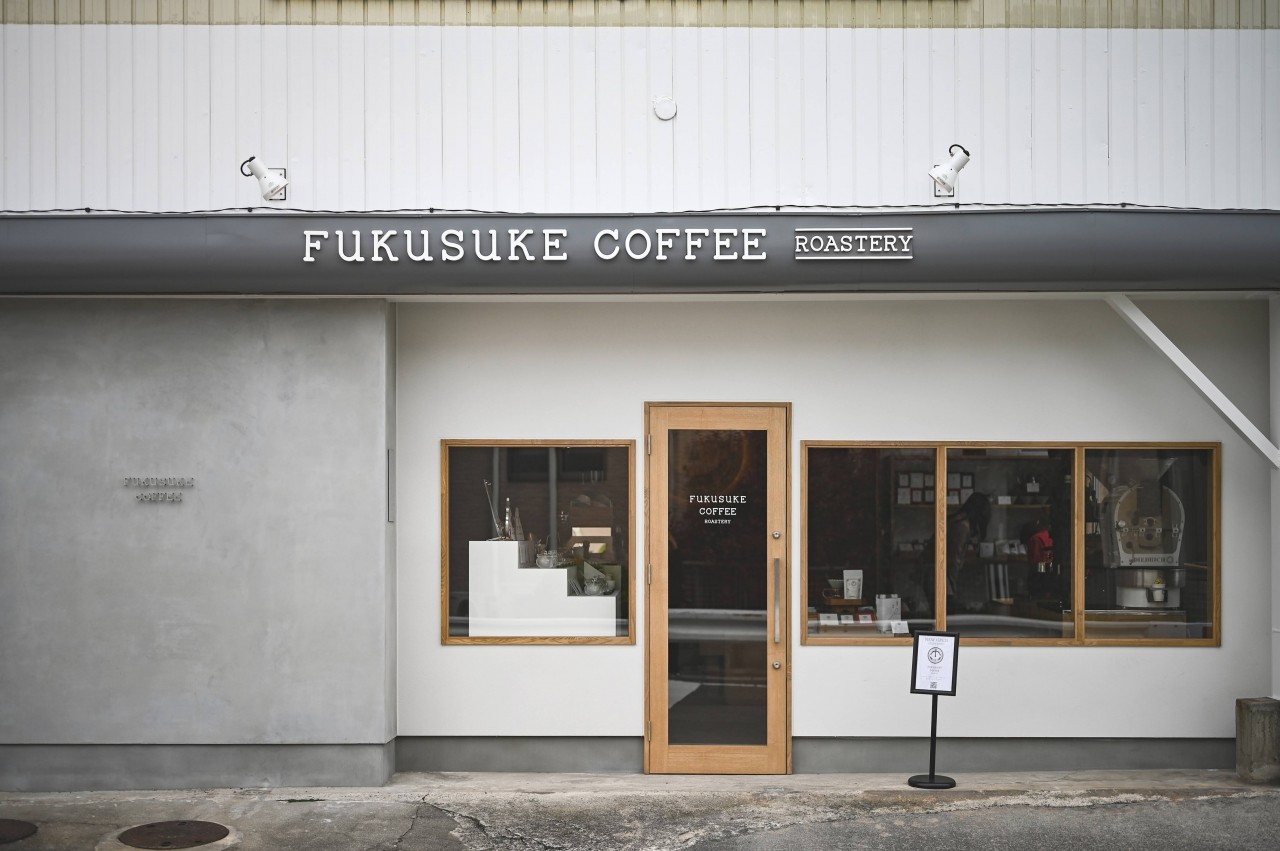
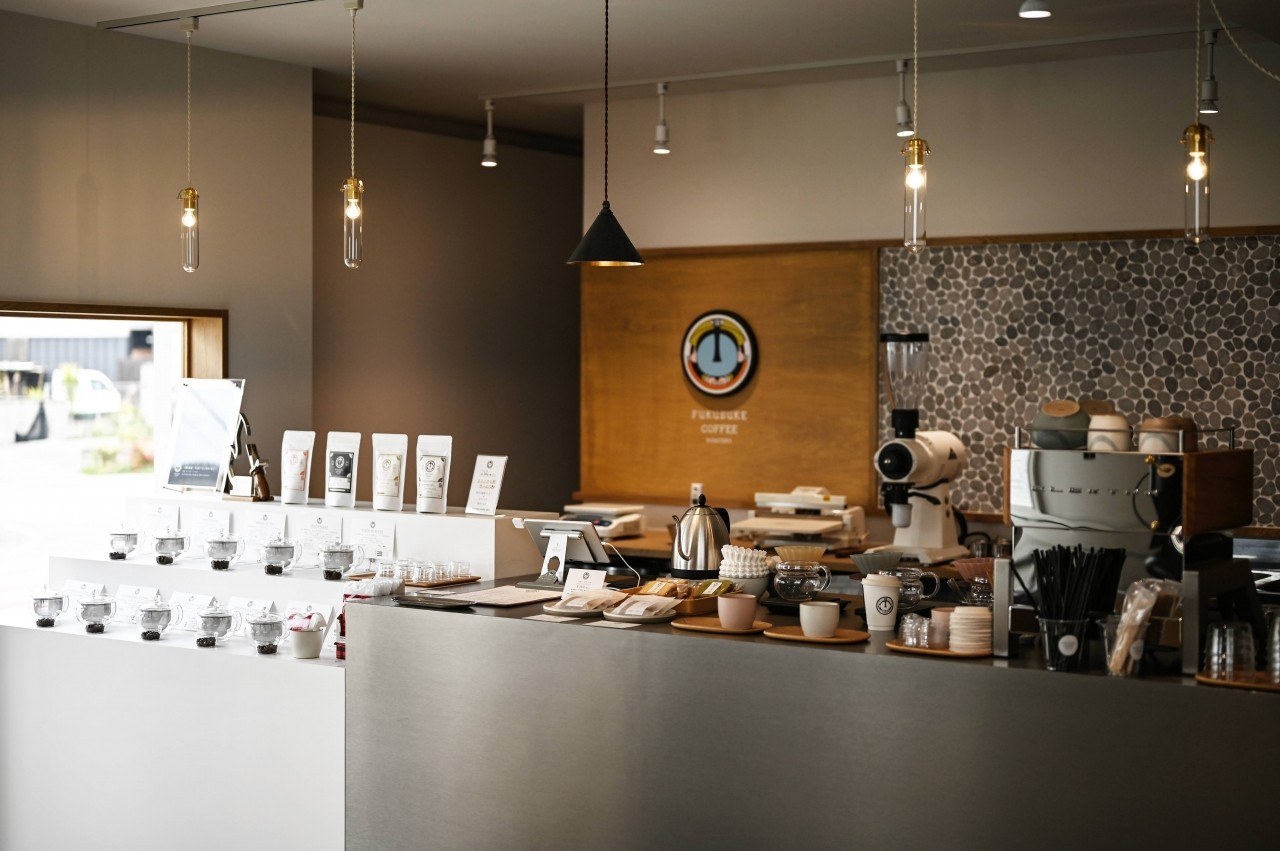
If you want to enjoy coffee more deeply
" CROWD ROASTER APP"
Manabu at CROWD ROASTER LOUNGE
・Push notifications for article updates・Full of original articles exclusive to CROWD ROASTER
・Direct links to detailed information about green beans and roasters
App-only features
- Choose green beans and roasters to create and participate in roasting events・CROWD ROASTER SHOP: Everything from beans to equipment is readily available
・GPS-linked coffee map function
